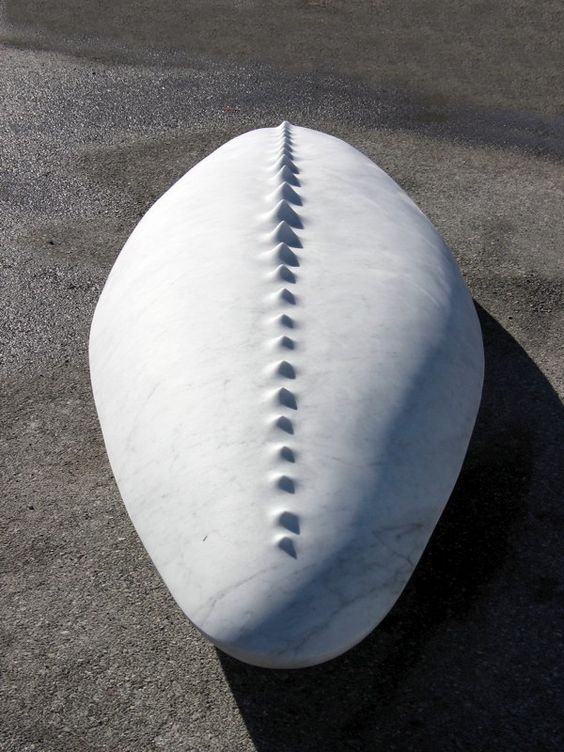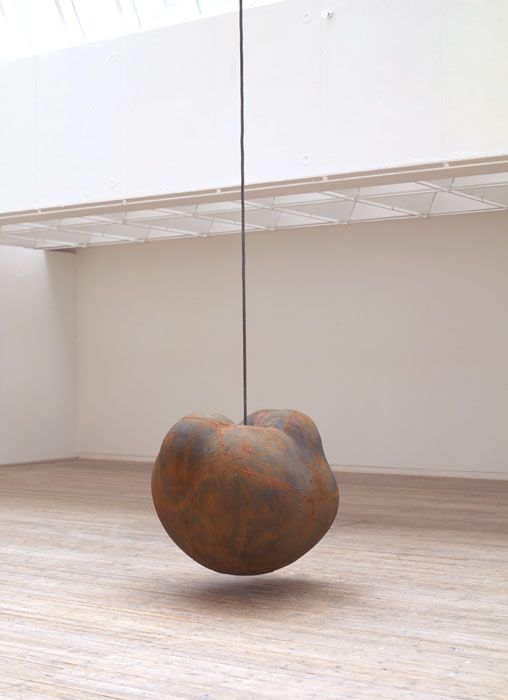THE ROCKY SMELL IN TEA
Why does warm rock smells so good?
Would you lick a lime stone?
# # #
A TEXT BY:
many online wine enthusiasts
IMAGE SELECTION BY:
Ming Yuan
DATE OF REPOST: 09.07.2024
ORIGINALLY PUBLISHED IN: WineBerserkers
Ben_M_a_n_d_l_e_r:
I’ve always been fascinated by rock descriptors in tasting notes. As a geologist I’ve probably licked and smelled more rocks than I should admit. But for those people who don’t spend most of their time chewing on clay and hiking across lava flows, I am wondering: how many distinct rock-like descriptors have you used or noticed in wines?
A young basalt lava flow baking in the mid-August sun does have a distinctive smell to it, but I have never noticeably smelled that in wines, volcanic soils or not. I’d describe tannins as chalky but I don’t think I’ve ever had a wine that I would describe as tasting or smelling like limestone - limestone dust at a quarry for example doesn’t smell the same as a piece of limestone you find at an outcrop somewhere, which is more likely to have a more light petrichor-like scent (as many rocks you might randomly come across do). So when I hear “crushed limestone” I’m not quite sure what people mean - any takers?
I think the term “wet rocks” is an interesting descriptor because wet rocks smell like lots of things. I was with some students out in the Hudson River Valley looking at some mélange rocks right in the river. The wet rocks in the shade were what I would consider the definition of minerality; those in the sun were too warm. So to me, “wet rocks” has for the most part been synonymous with (wet rocks in a river on a cold day). Your experience may differ, and I’d be interested to hear how.
Wet clay can be earthy, sulfurous, or vegetal, since the scent and taste come generally from what’s between the clays rather than the clays themselves. But I haven’t seen many clay-related descriptors.
Hit a quartzite hard enough with a hammer and you’ll smell smoke. Closest I’ll ever come to gunflint.
I know I’m way down in the weeds here…or deeper…but curious to hear how people think about rock characters in wine and what they mean to them.
![]() Photo by
Photo by
sibylle pasche in new york
Muscadet to me often smells like cold water running over rocks. But some of that is cold-suppression of other aromatics.
I think it’s hard to associate specific rocky smells with specific wines because rocky smells in the field almost never occur in isolation. I spent about six weeks on a Greek island doing some detailed mapping but the primary smells I recall were of garrigue, olive trees, goats wool, seaspray. Because rocks have so little scent to them, I can only parse a lot of rock-like scents from their environments in places with few other scents, notably (1) very cold environments where plant- and soil-based aromatics are suppressed, (2) plant-free environments, such as quarries, young lava flows, samples in a lab. For that reason I think rocky smells are often invoked when there is a portion of the nose that has no discernable smell beside being very clean. I think that is part of the reason that rocky-type descriptors are used more to describe white wines than reds: there’s less phenolic competition.
Rock textures aren’t just for tannins (for which chalk and talc are the ones I’ve used most commonly). If you get playa salts wet they get a greasy consistency to them. Some white Rhones that I’ve had have reminded me of this. I think for most people this manifests as wooly-oily but my reference point is different.
I’ve spent a lot of time on volcanoes so my sulfur fault descriptors differ from some people’s, but at that point I don’t think it matters much if you describe a wine as smelling like rotten eggs or fumaroles. Neither are pleasant.
Why does warm rock smells so good?
Would you lick a lime stone?
# # #
A TEXT BY:
many online wine enthusiasts
IMAGE SELECTION BY:
Ming Yuan
DATE OF REPOST: 09.07.2024
ORIGINALLY PUBLISHED IN: WineBerserkers
Ben_M_a_n_d_l_e_r:
I’ve always been fascinated by rock descriptors in tasting notes. As a geologist I’ve probably licked and smelled more rocks than I should admit. But for those people who don’t spend most of their time chewing on clay and hiking across lava flows, I am wondering: how many distinct rock-like descriptors have you used or noticed in wines?
A young basalt lava flow baking in the mid-August sun does have a distinctive smell to it, but I have never noticeably smelled that in wines, volcanic soils or not. I’d describe tannins as chalky but I don’t think I’ve ever had a wine that I would describe as tasting or smelling like limestone - limestone dust at a quarry for example doesn’t smell the same as a piece of limestone you find at an outcrop somewhere, which is more likely to have a more light petrichor-like scent (as many rocks you might randomly come across do). So when I hear “crushed limestone” I’m not quite sure what people mean - any takers?
I think the term “wet rocks” is an interesting descriptor because wet rocks smell like lots of things. I was with some students out in the Hudson River Valley looking at some mélange rocks right in the river. The wet rocks in the shade were what I would consider the definition of minerality; those in the sun were too warm. So to me, “wet rocks” has for the most part been synonymous with (wet rocks in a river on a cold day). Your experience may differ, and I’d be interested to hear how.
Wet clay can be earthy, sulfurous, or vegetal, since the scent and taste come generally from what’s between the clays rather than the clays themselves. But I haven’t seen many clay-related descriptors.
Hit a quartzite hard enough with a hammer and you’ll smell smoke. Closest I’ll ever come to gunflint.
I know I’m way down in the weeds here…or deeper…but curious to hear how people think about rock characters in wine and what they mean to them.
 Photo by
Photo by sibylle pasche in new york
Muscadet to me often smells like cold water running over rocks. But some of that is cold-suppression of other aromatics.
I think it’s hard to associate specific rocky smells with specific wines because rocky smells in the field almost never occur in isolation. I spent about six weeks on a Greek island doing some detailed mapping but the primary smells I recall were of garrigue, olive trees, goats wool, seaspray. Because rocks have so little scent to them, I can only parse a lot of rock-like scents from their environments in places with few other scents, notably (1) very cold environments where plant- and soil-based aromatics are suppressed, (2) plant-free environments, such as quarries, young lava flows, samples in a lab. For that reason I think rocky smells are often invoked when there is a portion of the nose that has no discernable smell beside being very clean. I think that is part of the reason that rocky-type descriptors are used more to describe white wines than reds: there’s less phenolic competition.
Rock textures aren’t just for tannins (for which chalk and talc are the ones I’ve used most commonly). If you get playa salts wet they get a greasy consistency to them. Some white Rhones that I’ve had have reminded me of this. I think for most people this manifests as wooly-oily but my reference point is different.
I’ve spent a lot of time on volcanoes so my sulfur fault descriptors differ from some people’s, but at that point I don’t think it matters much if you describe a wine as smelling like rotten eggs or fumaroles. Neither are pleasant.
CHARLIE_CARNES:
For me, I generally use mineral/rocks/clay dust, etc., to describe perceptions. We have all experienced petrichor in many forms. Wether its rain on dry asphalt, or freshly watered soil, or even dew drying in a lively forest. It is all in the mind’s eye, but the perceptions are real. As for clay, I use it in many descriptors: clay dust, dusty clay road, wet clay, clay soil. I am lucky enough to be a clay miner. I am surrounded by it every day. We dig it wet, deal with it when it gets too dry, blend it with other materials, etc. I even prospect. There is a very distinct aroma when steel auger bits heat up boring through hard clay! I have also been sand mining and processing for years. There are so many earth and soil perceptions that arise out of this as well. Maybe one day I’ll be able to use fulgurite perceptions as a descriptor in a wine I drink, probably for a Riesling.
I imagine most of the farmers here have experienced many distinct soil/rock/clay perceptions that come from their vineyards and farms.

Photo by
Alicja Kwade | Revolution Orbita
Christopher_Barnes:
It is not as simple as “grow grapes in rocks, get rock flavor in the wine”. The vines do not care about making wine, they only care about reproduction; thus, the vines to not take up flavors in their roots and put them into the grapes. The vines are interested in nutrients and those nutrients are used in a variety of ways; not just for fruit development. Part of the mystery of wine making is the incredible interactions between the raw ingredients in the fruit and the yeast to make the flavors present in wine. Not many components in grapes actually make it through fermentation unscathed by the fermentation process which is why tasting grapes rarely reflects the final wine character. Therefore, I would say that the winemaking process is much more influential (the only influence?) on minerality in the final wine than the soil/terroir of the vineyard. For example, Enartis’ research has indicated that lower Ph wines made in a reductive style (less oxygen) with a closure that does not allow for oxygen transmission will produce more minerality in the wine.

Photo by
Antony Gormley
